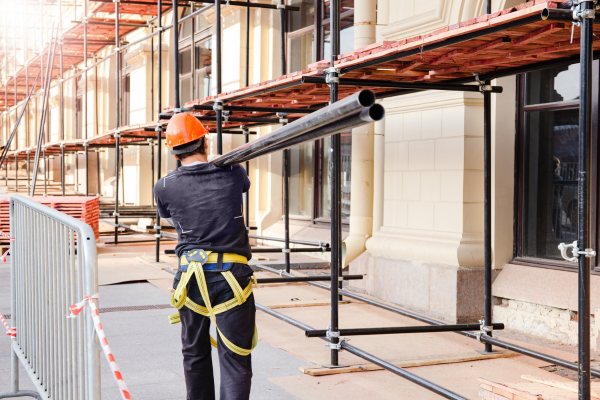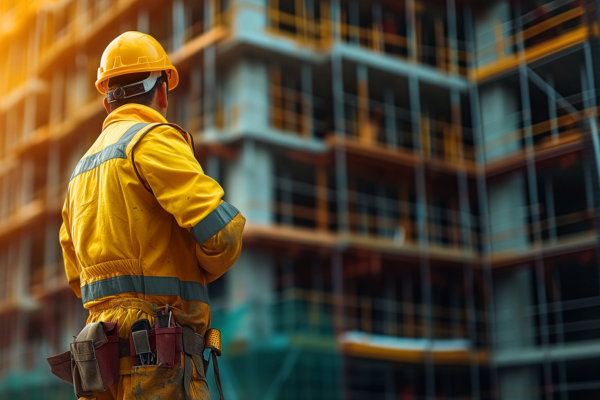Temporary Works Supervisor: Do You Actually Need It?
In the construction industry, temporary works are essential for enabling the safe completion of permanent structures. Whether it’s scaffolding, formwork, or shoring systems, every example of temporary works needs to be carefully designed, checked, and monitored to ensure safety on-site, which is where a Temporary Works Supervisor comes in. Although not technically a legally mandated role, having a dedicated supervisor for temporary works significantly reduces the risk of accidents, and errors. But does every site need a TWS? And what qualifications does a supervisor need to obtain?

A Key Player in Site Safety
Construction sites are dynamic environments. Things change quickly, and many structures are only in place for a short time. Even so, they carry just as much risk, if not more, than permanent works. The TWS plays a crucial role in maintaining the integrity and safety of these temporary structures. They help to bridge the gap between planning and practical application, ensuring that the works are erected, used, and dismantled in line with design specifications.
Responsibilities of a Temporary Works Supervisor
The Supervisor is responsible for overseeing the day-to-day management of temporary works. This includes checking that risk assessments and method statements are in place and being followed, ensuring all equipment is suitable and safe, and monitoring conditions that might affect the stability of temporary structures.
Ensuring Clear Communication
A big part of the supervisor’s job is communication. They act as a key point of contact between the Temporary Works Coordinator, designers, contractors, and workers. By facilitating clear lines of communication, the TWS helps ensure that everyone understands the risks, and procedures, involved in temporary works.

Supporting the Temporary Works Coordinator
While the Temporary Works Coordinator has overall responsibility for managing temporary works, the Supervisor supports this function on the ground. The supervisor helps ensure that the coordinator’s procedures and safety checks are implemented correctly and consistently on-site. It’s this relationship that keeps temporary works compliant, and under control.
Improving Safety Standards
Having a TWS on-site isn’t just about following guidance. It’s about raising safety standards across the board. By monitoring compliance, checking for hazards, and making sure best practices are followed, the supervisor helps to reduce accidents and project delays. It’s a proactive role focused on prevention.
Training and Qualifications
Although not technically a legally required role, most contractors and clients expect supervisors to hold a recognised qualification, usually the TWS training course. This one-day course covers risk awareness, industry standards, and your duties under the BS 5975 code of practice. It’s also a strong step forward in any construction safety career.
Conclusion: What Does a Temporary Works Supervisor Do?
A Supervisor plays a vital role in maintaining safe working conditions on construction sites. They’re the eyes and ears on the ground for temporary works, helping ensure that structures are erected and dismantled safely and in accordance with the design. Through proper training and communication, they help bring projects to completion without unnecessary risks.

If you still have any questions regarding the course, then do not hesitate to get in touch.
Phone – 020 3488 4472





